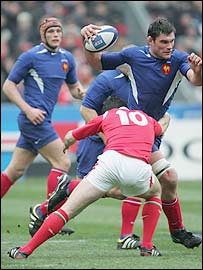
Many great Australian rugby players have played a major role in Australia's sporting success. John Eales and Ben Sharpe are just a few of the greats, as is Ken Catchpole.
It is difficult to pick the greatest Australian rugby player. While they may have different styles, they all share something in common. One is a legend; the other is a hidden gem and the last is a young wonder. All of them are looking for a place as part of the Wallabies starting side-line for the next Test with Wales.
Although the Wallabies have a rich and long history, there have been times when their achievements have been disappointing. The Wallabies have made a remarkable turnaround in recent years. Currently, the Wallabies are in the midst of a three-Test series against Wales. Dave Rennie, the coach, is trying to choose a line up for the final Test against Wales.

Wallabies also have an injury crisis, with Tim Horan and Michael Hooper both suffering concussions during their latest Tests. Meanwhile, the selectors are still debating the merits of a replacement for James O'Connor.
John Eales is the greatest Australian rugby star of all time. He was an extremely athletic lock forward with a huge work rate, who terrorized opposition lineouts. He won two World Cups with his flawless timing and exceptional hands. Eales was captain of Wallabies and helped them win a thrilling final against France to the 1999 World Cup.
Joe Roff is another Australian legend. He won Tri-Nations' trophy in 2000. He was also part of the 1999 Webb Ellis Trophy winning side.
There are many other greats from Australia's golden era. They include Chris Latham, George Smith and Stephan Larkham. Will Genia, another is also included. Genia, who was born in Papua New Guinea on 28 August 1988, was a schoolboy. Before moving to Australia, he represented the country at junior level. Since moving to Australia, Genia has become an elite domestic player, capped 110 times in his career.

Although he has not been a stalwart for the Wallabies, Matt Toomua has made a name for himself in the club game. He has signed a contract for the Leicester Tigers, and has won many caps for the Brumbies. Toomua was a key player in the 2013 Super Rugby match between the Brumbies and the Reds. This is an example of how Toomua shares his key skills off the pitch.
While many people would consider Ken Catchpole the greatest Australian rugby player of all time, he did not have a long career. During his 27 Tests, he was considered a complete scrum-half, with a superb set of hands and a keen eye for passes. He was also gifted in the areas of kick and speed.
Another great Australian rugby player was John Eales, who is regarded as the best lineout operator of all time. He was also a star of the Australian Schoolboys' squad in 1978.
FAQ
Do extreme sports need expensive equipment
Yes. Extreme sports equipment is expensive. These activities are affordable for those who don't have the means to pay a lot.
What skills are necessary for extreme sport?
It is essential to practice every day in order to be proficient in any extreme sport.
It is important to practice and learn new moves. This will help you improve your performance.
You should also be familiarized with safety rules before you attempt anything new.
For example, you should always wear protective gear such as helmets. Keep in sight of others.
It is a bad idea to try stunts without a spotter. During your stunt, a spotter should be watching over you.
Why do people enjoy extreme sports?
Extreme sports have many benefits.
They provide excitement.
Second, extreme sports are exciting. They tend to be unpredictable and sometimes scary.
Third, they allow people to push their limits. You never know what may happen next.
Fourth, they allow people to get away from everyday life.
Fifth, they allow people to express themselves through original forms of art. Some extreme sports are artistic expressions, such as surf carving.
They help people stay fit. Extreme sports can be beneficial for your body. For example, skydiving helps improve coordination, balance, and strength.
Extreme sports are great fun. Being part of a team is a lot of fun, especially if everyone is having a great experience.
Statistics
- Boxing— 90% of boxers suffer brain damage over their careers, and this is not surprising in the least, considering that they are throwing punches at each other's heads. (rosenfeldinjurylawyers.com)
- According to the United States Parachuting Association, about 21 people die yearly from skydiving. (livehealthy.chron.com)
- Overall participation has grown by more than 60% since 1998 - from 5.9 million in 1998 to 9.6 million in 2004 Artificial Wall Climbing. (momsteam.com)
- Landscaping and grounds-keeping— according to government labor statistics, about 18 out of 100,000 workers in the landscaping industry are killed on the job each year. (rosenfeldinjurylawyers.com)
- Nearly 40% of all mountain bikers have at least graduated from college. (momsteam.com)
External Links
How To
How Can I Learn To Skateboard?
Skating is a sport in which you use your feet for movement on ice and snow. This can be done by you or your friends. It is a sport that requires balance and coordination. First, you must learn how to stand on the board. Next, you will need to practice balance while moving forwards and backwards. You can also try jumping off stairs or ramps. You'll be able to glide faster and farther once you have mastered these skills.
These tips will help you get started if you want to learn how to skate.
-
You should determine what type of skates are best for you. There are many options for skates such as inline, roller, speed, figure, and speed. Depending on your level of experience, you can choose the right kind of skates. If you're new to skating, the best options are inline skates, speed skates, and roller blades. Figure skaters prefer boots that offer support throughout their performances.
-
Buy proper equipment. Your gear choice depends on whether you plan to participate in competitive events or just enjoy skating around the park. Make sure your skates are comfortable, fit well, have excellent stability, and are made from durable materials if you plan on competing.
-
Try new things. Learning any skill takes practice. So don't wait until you master a trick to try it out. Instead, try simple moves like walking backward, sliding sideways and spinning. You won't be intimidated if you try more difficult moves later.
-
Keep learning. Never expect to become a skilled skater overnight. Skaters who are the best spend many years perfecting their skills. And they never stop improving. Also, remember that there are many ways to improve your technique. Take lessons at a local rink. Or, watch videos online.
-
Be patient. Don't be discouraged if you have difficulty with a difficult maneuver. You can keep practicing. You'll eventually feel confident enough to do advanced stunts.
-
Have fun. Skating is a great sport for beginners because it doesn't involve expensive equipment and requires no special training. It's also very enjoyable!